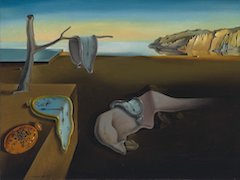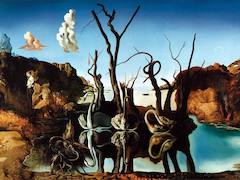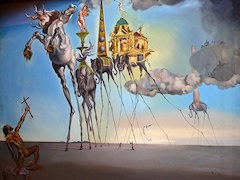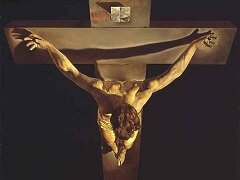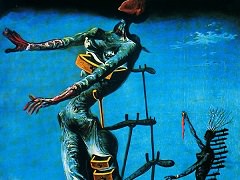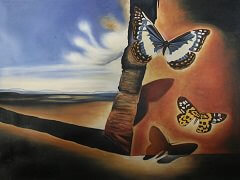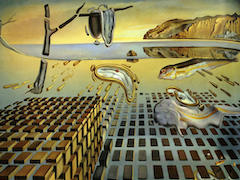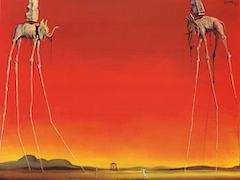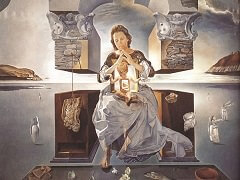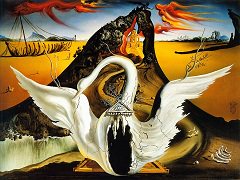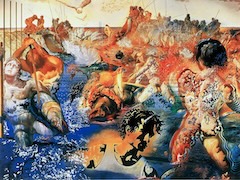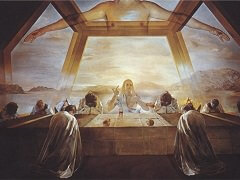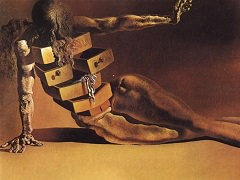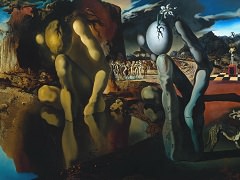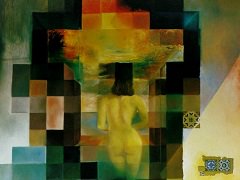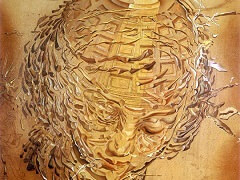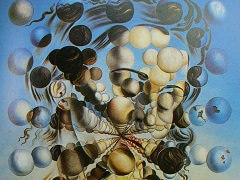Big Thumb, Beach, Moon and Decaying Bird (Dit Gros), 1928 by Salvador Dali
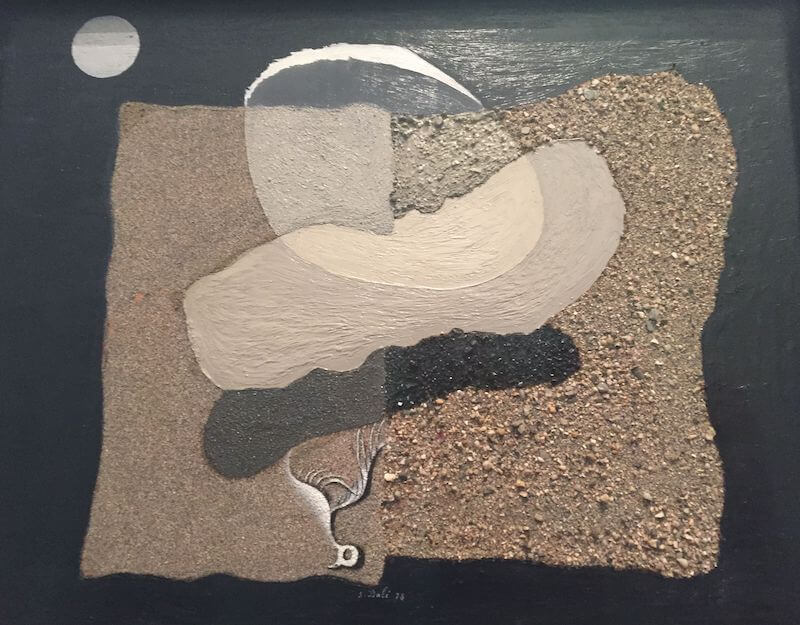
Dali submitted Big Thumb, Beach, Moon and Decaying Bird along with another work entitled Dialogue on the Beach/Unsatisfied Desires to Barcelona's 1928 Autumn Salon at the Sala Pares. The overt sexual content of Dialogue (a hand with an outrageous phallic finger pointing upward engages in a frustrated and impossible "dialogue" across an expanse of open space with a feminine mass to its right; the desire for union is graphically written across the space of the painting in a delicate, meandering line) so concerned the director of the gallery, Joan Maragall, that he asked Dali to withdraw it from the exhibition.' Outraged, Dali rejected Maragall's proposal out of hand and decided to show the two pictures elsewhere. Dali then approached his dealer Josep Dalmau with the possibility of exhibiting the two paintings in a group show, insisting, in a savvy publicity ploy, that the corresponding catalogue indicate they had been rejected from the Sala Pares show. Awaiting Dalmau's response, Dali threatened Maragall that, under the circumstances, he would not deliver a much publicized lecture on the occasion of the Autumn Salon. Maragall's response was an offer to buy the two paintings on the condition that only the less contentious one be exhibited.
Dali took full advantage of this unhappy course of events, delivering a lecture at the Sala Pares that attacked the foundations of the Catalan cultural establishment by systematically negating the idea of a racial essence in Catalan art, the much championed revival of Catalan decorative arts and metiers, and the preeminence of regional landscape painting (one of the Catalan bourgeoisie's sacred cows). Championing the machine aesthetic and the work of Miro, Arp, Brancusi, and Picasso, Dali boldly proclaimed:
Only an art generated on the margins of the intelligence - on the margins of all culture, of any system of culture, [an art of] pure consequence, a pure product of inspiration and instinct - arrives at intuitive truths of an absolute value and exactitude.
From this point onward, there would be no turning back for Dali; the Catalan public came to expect scandal from the young artist, and Dali gladly delivered in kind.

